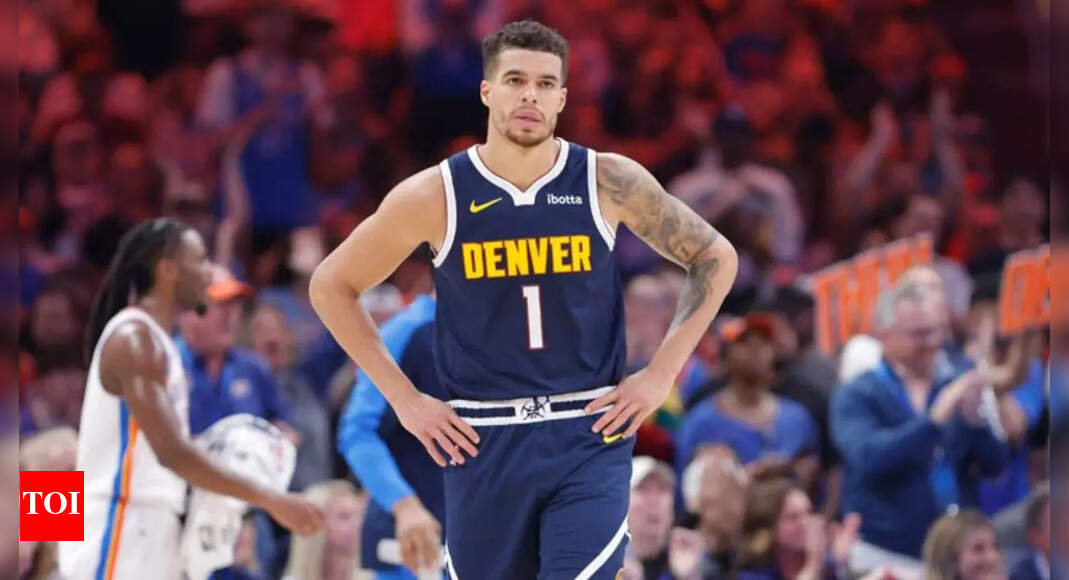In an era where professional athletes command multi-million dollar contracts, the intersection of personal relationships and financial responsibility continues to generate intense public discourse. Brooklyn Nets forward Michael Porter Jr. recently found himself at the center of such a conversation after revealing his unconventional approach to sharing living expenses with a former girlfriend, despite his substantial $30 million net worth.
The Revelation That Started It All
During a candid podcast appearance, Porter Jr. opened up about his past relationship dynamics, specifically addressing how he handled financial arrangements with an ex-girlfriend. The NBA star revealed that he maintained a strict 50/50 split on rent payments, even though his income far exceeded that of his partner at the time.
Porter Jr. justified this decision by explaining that his former girlfriend was “living beyond her means” and that he was attempting to teach her financial responsibility. This revelation has sparked widespread debate about the appropriate balance between personal wealth and relationship dynamics, particularly when significant income disparities exist between partners.
Understanding Porter Jr.’s Financial Landscape
To fully grasp the implications of this story, it’s essential to understand Porter Jr.’s financial position. The 25-year-old forward has built substantial wealth through his NBA career, with his net worth estimated at approximately $30 million. His current contract situations and previous deals have positioned him among the league’s well-compensated players.
Porter Jr.’s journey to financial success began when he was selected 14th overall in the 2018 NBA Draft by the Denver Nuggets. Despite early injury concerns that affected his draft position, he has developed into a valuable player, earning significant contracts that reflect his on-court contributions. His recent move to the Brooklyn Nets represents another chapter in his professional career, likely accompanied by substantial financial compensation.
The Reality of NBA Wealth
For context, NBA players often earn more in a single season than most people make in their entire careers. This creates unique challenges when it comes to personal relationships, as the income disparity between athletes and their non-athlete partners can be substantial. The question becomes: how should wealthy individuals navigate these financial imbalances while maintaining healthy relationship dynamics?
Examining the Psychology Behind Financial Boundaries
Porter Jr.’s approach to splitting expenses raises important questions about financial psychology in relationships. Some relationship experts argue that maintaining financial boundaries, regardless of wealth disparity, can actually strengthen partnerships by ensuring both parties maintain their independence and avoid potential resentment.
From this perspective, Porter Jr.’s insistence on equal contribution could be seen as an attempt to prevent his partner from becoming financially dependent or developing unrealistic spending habits. The concept of “teaching financial responsibility” suggests a paternalistic approach that some might view as protective, while others could interpret it as controlling.
Alternative Viewpoints on Relationship Finances
However, critics of Porter Jr.’s approach argue that proportional contribution based on income would be more equitable. In this model, each partner contributes a percentage of their income rather than an equal dollar amount, ensuring that the financial burden feels similar for both parties.
Financial advisors often recommend that couples with significant income disparities consider various approaches, including proportional splitting, designated responsibility areas, or open communication about financial expectations. The key is finding a system that both partners feel comfortable with and that doesn’t create undue stress or resentment.
The Broader Conversation About Athlete Relationships
Porter Jr.’s revelation taps into a broader conversation about how professional athletes navigate personal relationships. The unique pressures of professional sports, combined with substantial wealth and public scrutiny, create challenges that most couples never face.
Many athletes have spoken about the difficulty of determining whether romantic interests are genuine or motivated by financial gain. This concern can lead to protective behaviors, such as Porter Jr.’s insistence on equal financial contribution, as a way to gauge a partner’s true intentions.
Public Reaction and Social Media Response
The public response to Porter Jr.’s comments has been decidedly mixed. Social media platforms have seen heated debates between those who support his approach and those who criticize it. Supporters argue that his policy demonstrates good financial sense and prevents exploitation, while critics contend that it shows a lack of generosity and understanding of income inequality.
This divided reaction reflects broader societal disagreements about wealth, responsibility, and relationship dynamics. The conversation has extended beyond Porter Jr.’s specific situation to encompass questions about how society expects wealthy individuals to behave in personal relationships.
Implications for Future Relationships
For Porter Jr., now with the Brooklyn Nets and continuing to build his career, these revelations may impact how he approaches future relationships. The public nature of his comments means that potential partners will likely be aware of his financial philosophy before entering into serious relationships.
This transparency could actually be beneficial, as it sets clear expectations from the beginning. However, it also raises questions about whether such rigid policies are sustainable in long-term, committed relationships where traditional boundaries often become more fluid.
Lessons for Non-Athletes
While Porter Jr.’s wealth level is extraordinary, the underlying questions about financial responsibility in relationships are relevant to couples across all income levels. The key principles of communication, boundary-setting, and mutual respect apply regardless of the actual dollar amounts involved.
Relationship counselors often emphasize that financial compatibility is one of the strongest predictors of relationship success. Porter Jr.’s approach, whether one agrees with it or not, represents an attempt to address this compatibility early in the relationship.
Key Takeaways
- Financial boundaries in relationships can be complex, especially when significant income disparities exist
- Professional athletes face unique challenges in navigating personal relationships due to wealth and public scrutiny
- Porter Jr.’s 50/50 policy reflects concerns about financial responsibility and genuine romantic interest
- Public reaction has been divided, highlighting broader societal disagreements about wealth and relationships
- Clear communication about financial expectations is crucial for relationship success across all income levels
- Different approaches to shared expenses can work, but they require mutual agreement and understanding
As Porter Jr. continues his career with the Brooklyn Nets, his openness about relationship finances serves as a conversation starter about the complex intersection of love, money, and personal values. Whether his approach proves successful in future relationships remains to be seen, but his willingness to discuss these topics publicly contributes to important ongoing conversations about modern relationship dynamics.

Born and raised amidst the hustle and bustle of the Big Apple, I’ve witnessed the city’s many exciting phases. When I’m not exploring the city or penning down my thoughts, you can find me sipping on a cup of coffee at my favorite local café, playing chess or planning my next trip. For the last twelve years, I’ve been living in South Williamsburg with my partner Berenike.

